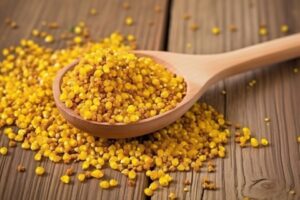Diabetes

Diabetes is a long-term medical disorder characterized by high blood glucose levels. This can happen for two reasons:
1 either the body doesn’t make enough insulin, a hormone that regulates blood sugar.
2 the cells don’t react appropriately to the insulin produced.
Types of diabetes
1. Type 1 Diabetes: This autoimmune disease occurs when the immune system inadvertently targets and kills the insulin producing cells in the pancreas. Insulin injections or insulin pumps are necessary to control blood sugar levels for people with type 1 diabetes. It usually begins to appear in early adulthood.

2. Type 2 Diabetes: This is the most prevalent type of diabetes and is often associated with unhealthy lifestyle choices such as obesity, inactivity and poor diet. In type 2 diabetes, the body develops resistance to the effects of insulin and the pancreas cannot produce enough insulin to control blood sugar levels.
Lifestyle changes, oral medications and sometimes insulin injections can all help manage it.

3. Gestational Diabetes: Insulin resistance can develop during pregnancy as a result of hormonal changes. Although it usually goes away after childbirth, women who experience gestational diabetes are more likely to develop type 2 diabetes later.
Common Symptoms: Diabetes can manifest various symptoms, some of which include:
• Frequent urination
• Excessive thirst
• Unexplained weight loss
• Fatigue
• Blurred vision
• Slow-healing wounds
• Tingling or numbness in hands and feet
Natural remedies might have some potential benefits for managing diabetes
1. Cinnamon:
Some research points to cinnamon as a possible aid in increasing insulin sensitivity and lowering blood sugar levels. However, research is inconclusive, and a significant amount of cinnamon is needed for results to occur. Use cinnamon sparingly and talk to your doctor if you are interested in doing so.
2. Fenugreek:
Fenugreek seeds are high in fiber and have been linked to better blood sugar regulation. Additionally, they may reduce insulin resistance. Fenugreek seeds can be included in your diet, but you must exercise caution and monitor your blood sugar levels as they can lower it too much.

3. Bitter Melon:
In traditional medicine, Bitter Melon has been used to treat diabetes. According to some studies, it may help lower blood sugar levels, but since it has a bitter taste, not everyone may like it.

4. Chromium:
One mineral that helps insulin function properly is chromium. According to some research, chromium supplementation may aid in better blood sugar regulation, especially in people who are chromium deficient. However, taking supplements in excess can have negative effects, so it’s important to speak with a healthcare professional before doing so.

5. Apple Cider Vinegar:
According to some studies, apple cider vinegar can help increase insulin sensitivity and lower blood sugar levels after meals. If you’re thinking of using apple cider vinegar, dilute it in water and take with a meal, but remember to check with your doctor first.

6. Green Tea:
Green tea contains catechins, an antioxidant that may improve insulin sensitivity and blood sugar levels. If you consume green tea in limited quantity then it can be beneficial in your diet.

7. Physical activity:
Regular exercise is a natural way to lower blood sugar levels, increase insulin sensitivity and control weight. Before starting a new fitness talk with your health care professional, especially if you have any preexisting medical concerns.
It is important to remember that although these natural remedies may have some potential benefits, they should not be used in place of medical care. Diabetes is a complex disorder, and effective treatment often involves a mix of dietary adjustments, medication, and medical monitoring. Always work closely with your health care professional to create a holistic diabetes management strategy that is safe and appropriate for your specific needs.


